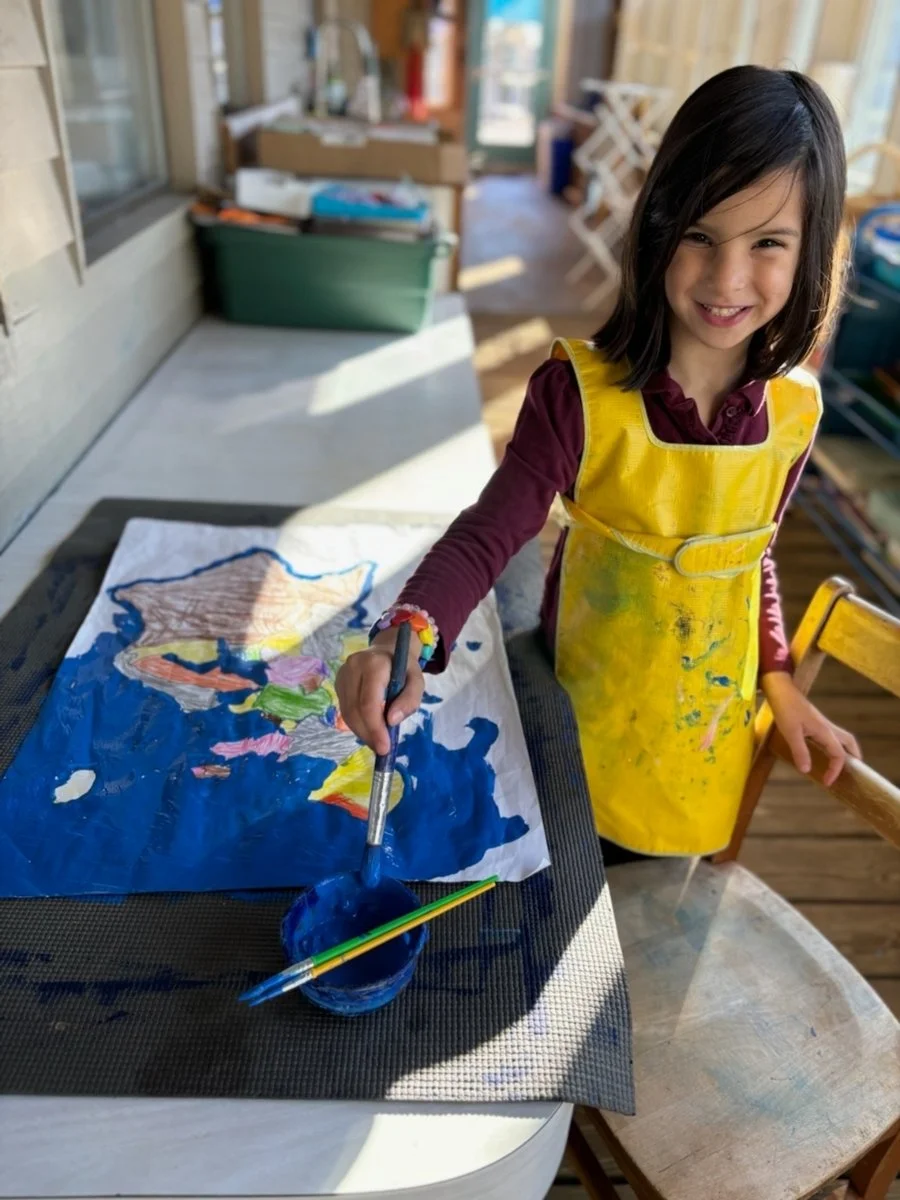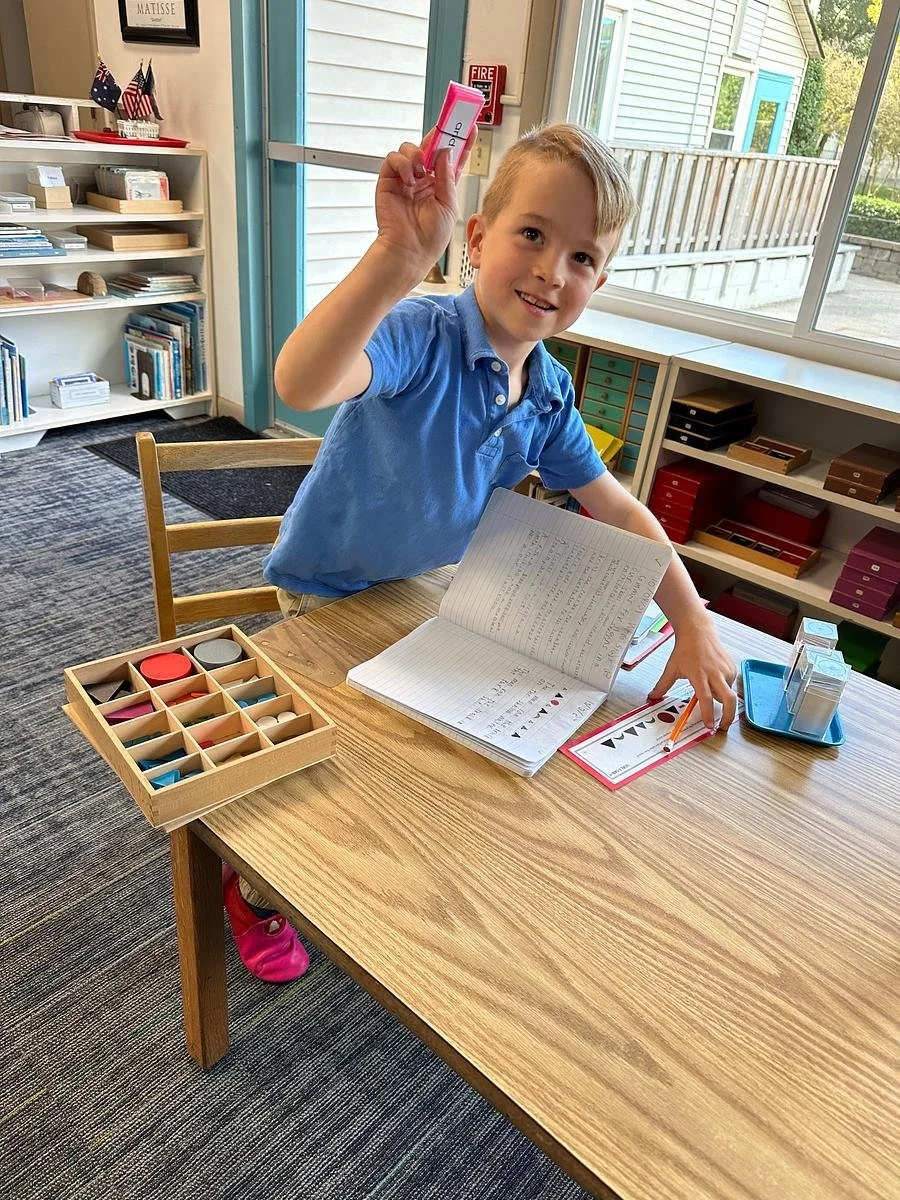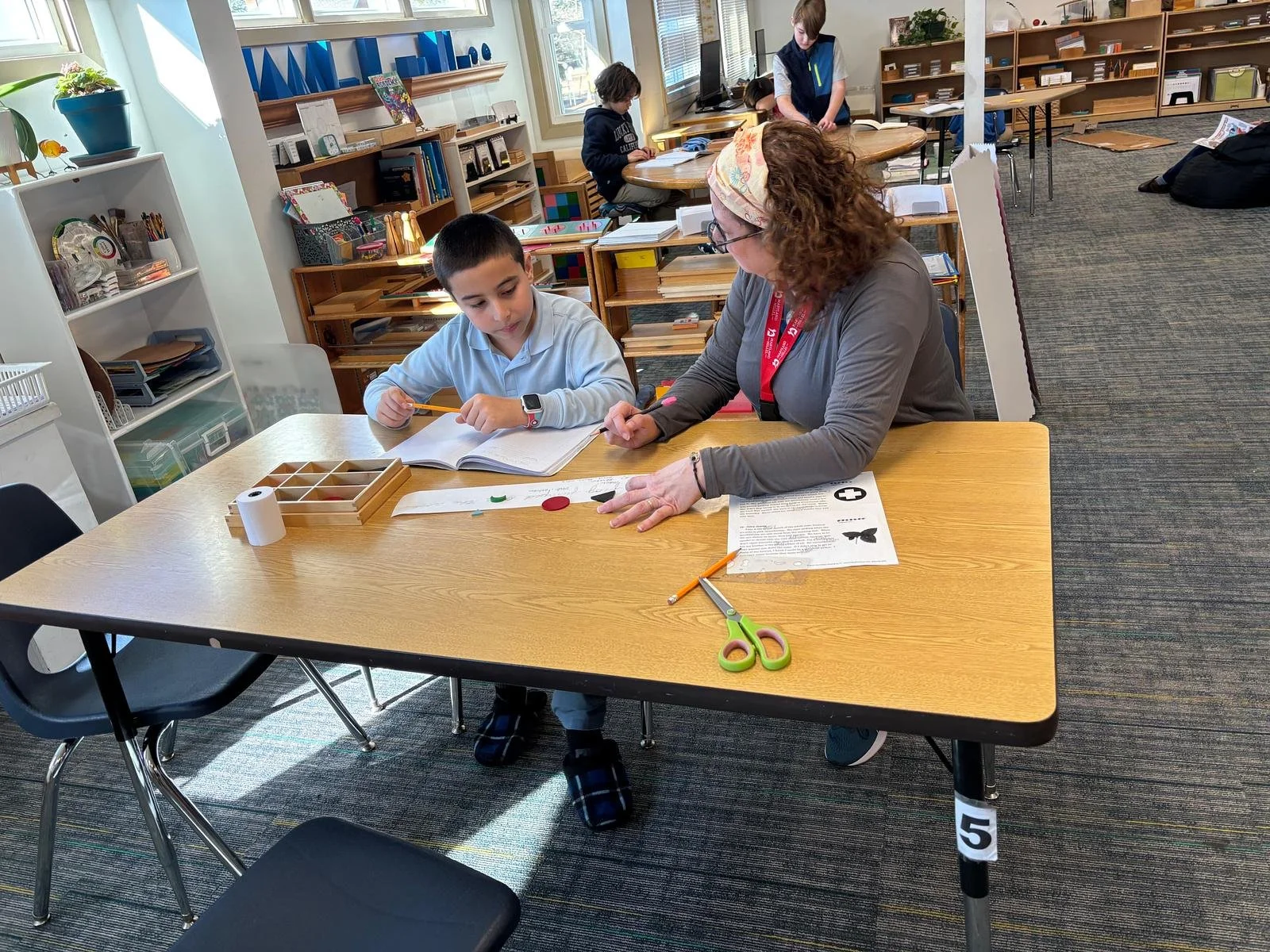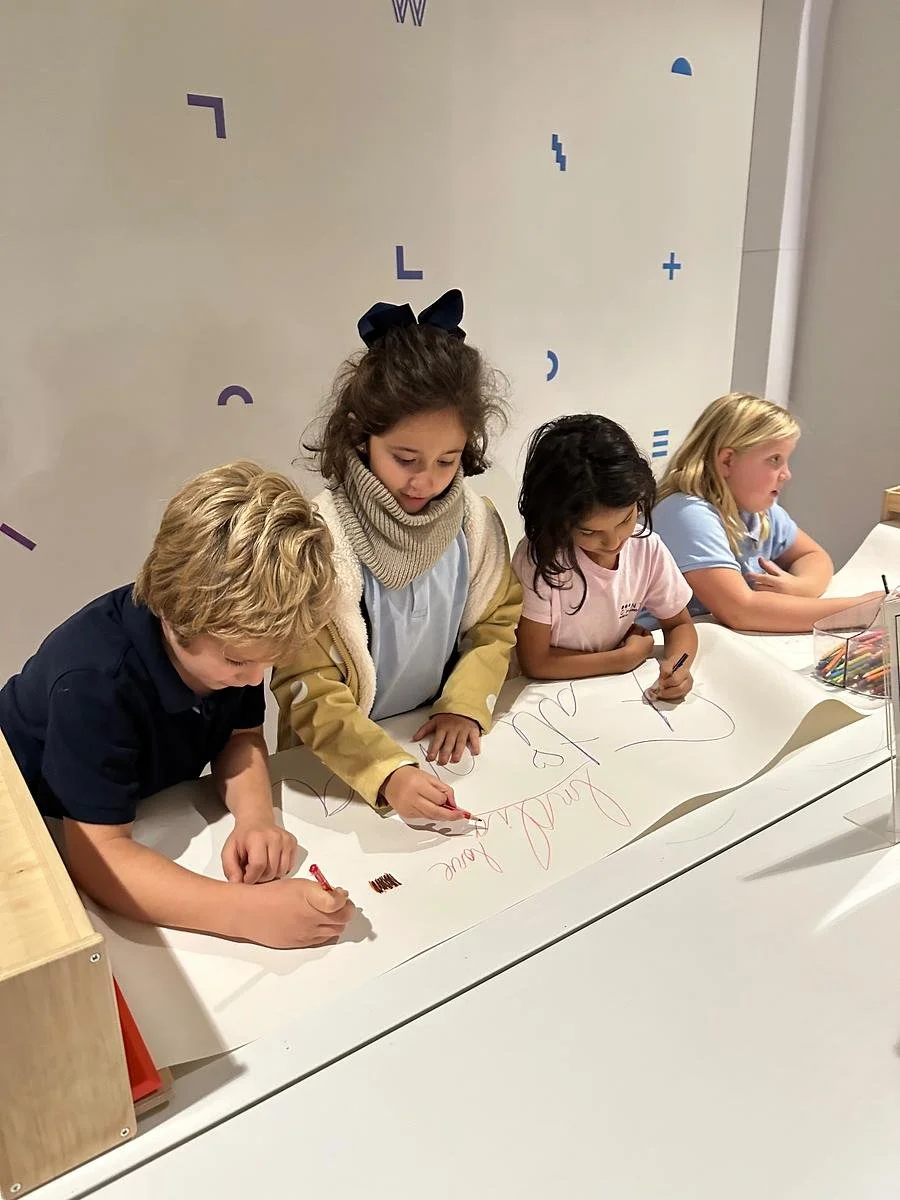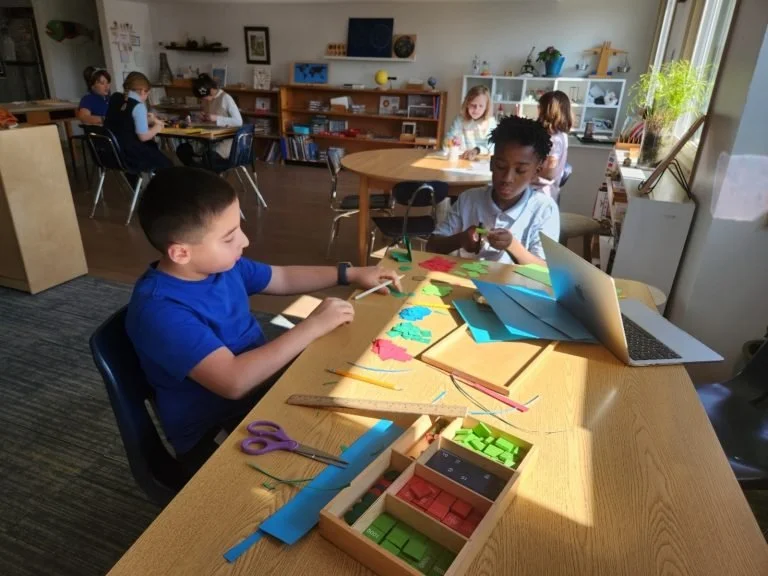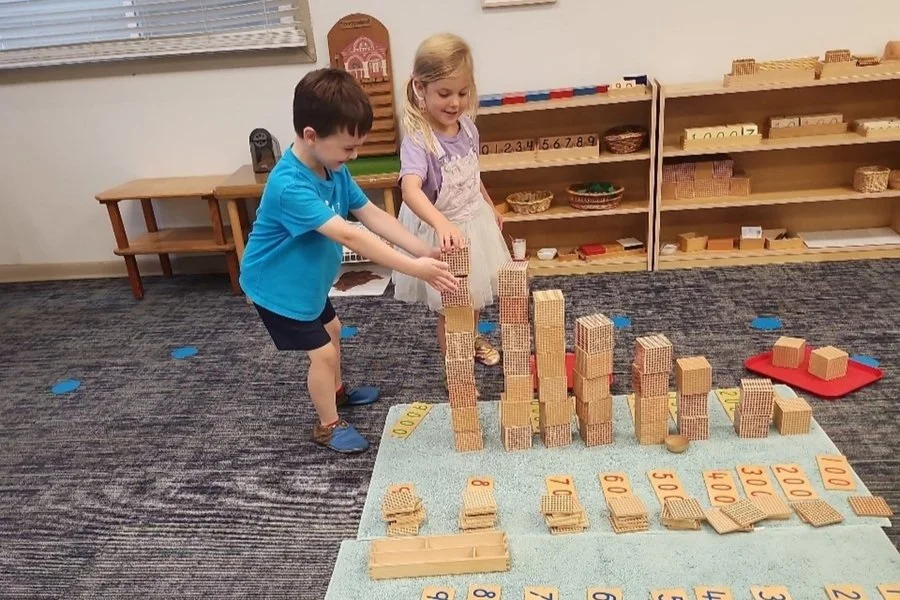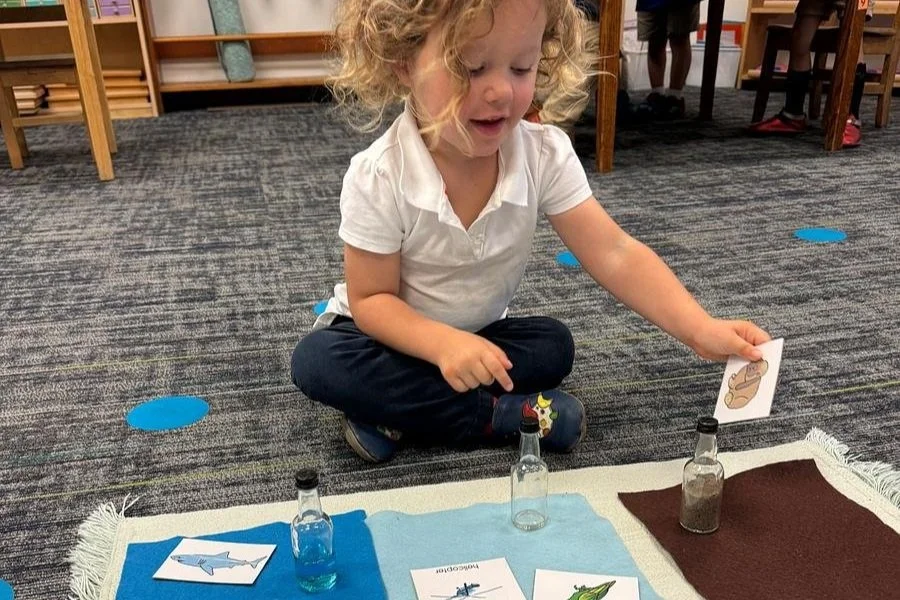Our Purpose
Serving Hampton Roads with Authentic Montessori Education Since 1978
18 months through Middle School
“Within the child lies the fate of the future.”
Our Mission
At Ghent Montessori School, our mission is to support the whole child, intellectually, emotionally, socially, and physically, by meeting each child's unique needs in a carefully prepared Montessori environment. We cultivate independent thinking, empathy, social responsibility, and inner confidence to empower children as capable, compassionate members of their communities.
All our classrooms are intentionally multi-age, typically spanning three years. This structure allows children to grow at their own pace, beginning as curious newcomers and naturally becoming confident leaders within their classroom community.
Unlike traditional schools, our approach is deeply individualized. Children are guided by their own curiosity and intrinsic motivation, not external rewards or one-size-fits-all instruction. The result is a learning environment where each child is empowered to take ownership of their education.
You’ll find children cooking meals together, caring for classroom pets and gardens, exploring math with bead chains, building timelines of ancient civilizations, giving oral reports on self-chosen research topics, and mediating their own conflicts using peace tables. These kinds of hands-on, meaningful activities foster real-world skills: independence, collaboration, critical thinking, and empathy. This prepares children not just for the next grade level, but for life.
Guiding Values
1 • Individualized learning
Dr. Montessori recognized that each child is unique and develops according to an inner timetable. In our Montessori classrooms, new concepts are introduced to your child when they show an interest and readiness. This allows each child to be challenged according to their ability, rather than age-based standards.
2 • Mixed aged classrooms
Dr. Montessori observed distinct “planes of development.” These are periods in which all children share characteristics, interests and tendencies. At GMS, children are grouped in multi-age classrooms that mirror these three-year age spans, encouraging peer-teaching, leadership, and a community atmosphere.
3 • Freedom within limits
We introduce children to a broad curriculum, but give them the freedom to pursue their own interests, while making responsible choices. The result is that children become independent learners, self-motivated, and excited about pursuing a lifelong education.
4 • Children learn by doing
You won’t see rows of desks, a teacher at a blackboard in front of the class, or children filling out mind-numbing worksheets. Rather, children will work hands-on, with beautiful learning materials specifically designed to facilitate a deep understanding of abstract concepts and essential skills to carry them throughout life.
5 • Independent children
Dr. Montessori observed that all children have a natural drive to be independent and our Montessori classrooms are designed to encourage this process. Small furniture, low shelves, and child-size tools allow students to take care of themselves, their friends, and the classroom with limited help needed from adults.
6 • Intentional environment
Our trained Montessori teachers spend considerable time creating a classroom environment to meet your child’s every need. Child-size materials and tools that aid independence are organized and cleaned daily so students can access and use them when needed. Cultural items of interest, beautiful artwork and plants create a warm, inviting environment in which children will love to learn.
7 • A community of children
Kindness and respect for others are modeled by our teachers with “grace and courtesy” lessons. The oldest children, who are finishing their three-year cycle, serve as leaders for their younger friends. The result is a loving and peaceful community of children.
8 • Respect for children
Through her observations, Dr. Montessori grew to respect the child as a capable, admirable individual to be unconditionally accepted as one of life’s most marvelous expressions. Our GMS staff is dedicated to this belief. We strive to develop a deep relationship with your child, respecting each as an individual, including his or her unique gifts, talents, and traits.

